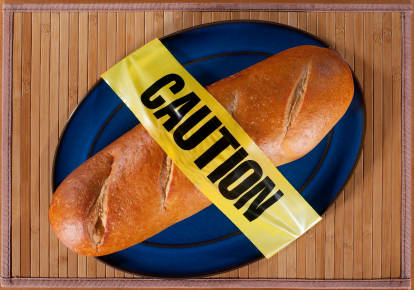Your Pre-Teens Weight
Are you worried that your pre-teen may be gaining weight? A major growth spurt often occurs during the pre-teen (middle school) years. Every part of a child’s body changes in size and proportion. Appetite increases, eating increases and often kids become heavier before their height takes off. The extra weight gain can concern parents. Should it?
It depends, says registered dietitian and Academy of Nutrition and Dietetics spokesperson Sarah Krieger. “More homework, more computer time, more snacking, less parental control over what’s eaten and fewer kids playing sports can put on pounds.” Add in their sense of uncertainty and cascade of emotional changes, and you have the perfect storm for weight issues.
How a parent deals with these changes is important, notes Krieger. “Done well, a parent establishes a solid foundation for a lifetime of healthy habits; if not, a child’s relationship with food may suffer and even result in pre-eating disorder problems.”
Pinpointing if Weight Gain is a Concern
The best way to determine if weight changes are worrisome is to plot a child’s weight, height and body mass index (BMI) on growth charts, says Roberta Anding, MS, RD, Director of Sports Nutrition at Texas Children’s Hospital. BMI charts help measure weight-for-stature against age and, when plotted over several years (from age 2 on is recommended), they show weight and growth trends. With the help of your health care provider you can see if your child’s weight is moving in a good direction or if a notable change has occurred that needs attention.
Easy Does It if Weight’s an Issue
If the trend in your child’s weight should be addressed, take the high road, says Anding. “Preaching, nagging and constant comments about food choices is counter-productive.” Research suggests that parents who try to keep their child thinner by restricting and restraining foods, actually raise heavier kids. Krieger and Anding offer these tips for helping your pre-teen achieve a healthy weight:
- Schedule annual check-ups with your health care provider. Ask that he or she plot your child’s height, weight and BMI on the growth charts each year. Together review and discuss the trends.
- Talk with your health care provider before you go in for an appointment. If you have concerns, talk by phone pre-appointment to discuss the best way to address the topic and best action plan for helping your child. Be on the same page. Keep the conversation in front of your child positive and constructive.
- Establish a positive environment at home.
- Position changes as being for the whole family vs. calling out special foods/special actions for one child in particular. Everyone in the family benefits from a “new and improved” healthy home.
- Practice the “division of responsibility” approach to feeding your family: A parent’s job is to determine which foods are available and served at home, when they’ll be served and where they’re served. It’s a child’s responsibility (and his or hers alone) to decide if and how much to eat of those foods.
- Stock your home with primarily healthful (tasty) foods. Make them easy to get to – and make them enticing. Celery sticks won’t do it for many kids, but jicama or sugar snap peas with hummus or a zesty yogurt dip might. Juicy fruits, crispy vegetables, hearty whole-grain crackers and cereals are wonderful grab-and-go foods.
- Walk the talk. Set some guidelines for snacking (steering clear of snacks close to meal times) and how much time can be spent on the computer or watching television. Be sure to adhere to the “rules” as well. Eat healthful foods in front of your kids; weave physical activity into the errands and leisure things you do together.
- Have calm, enjoyable sit-down family meals. There is a direct correlation between eating together as a family and healthful lifestyle habits in kids. Happy family meals offer structure, support and a good opportunity to connect with your kids.
- Convey a positive body image. How you feel about your body influences how kids feel about theirs. If you have a positive body image, your kids will see that. If you don’t, they know that too. In the best interest of their health, “mums” the word if you’re less than happy about your jiggly thighs or a wiggly tummy.
-
Online Registration For Fitness Training
Weight is the ever growing issue. Because of over weight and obesity,
-
The Apples And Oranges Of Weightloss
In today’s hurried, hectic and often fast paced world, trying
-
Energy Bars: Natural Boost
When you are going about your daily life, you sometimes need a boost o
-
The Healthy Halloween Candy Guide
It’s that time a year again…to start slacking on o
-
Is Hoodia Effective For Dieting
Research performed at the Council for Scientific and Industrial Resear
-
Avoiding Emotional Over Eating And Minimizing Stress: Practice Saying No
Being stressed, overwhelmed and over-tired is one of the primary ca
- DON'T MISS
- 4 Ways to Shrink Your Belly (Without Exercise!)
- Cider Vinegar - An Old Wives Method to Lose Weight Fast
- Slimming Tricks: Losing Weight With and Without the Sweat
- Body Sculpting Excess Weight Reduction and Thinking
- Our Top 8 Lose Beer Belly Diet Tips
- Ways To Get Thin Arms Quickly – How To Guide
- Discover The Secrets Of The African Hoodia Cactus Weight Loss Miracle Herb
- Can You Achieve Weight Loss Through Hypnosis?
- Best Ways To Conquer The Plateau In Your Weight Loss Plan.
- The Best and Worst Things to Do Before and After Lunch




